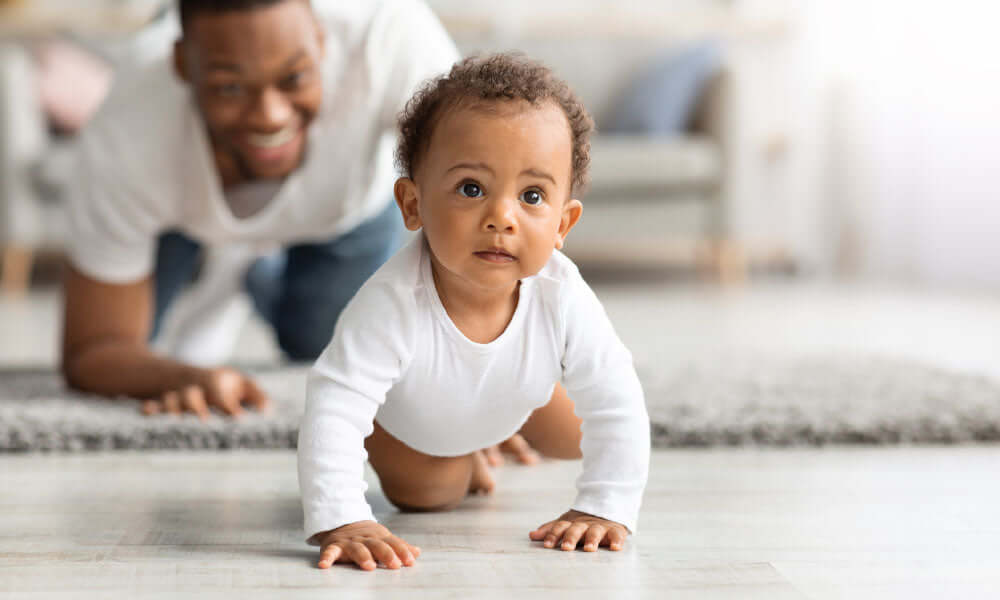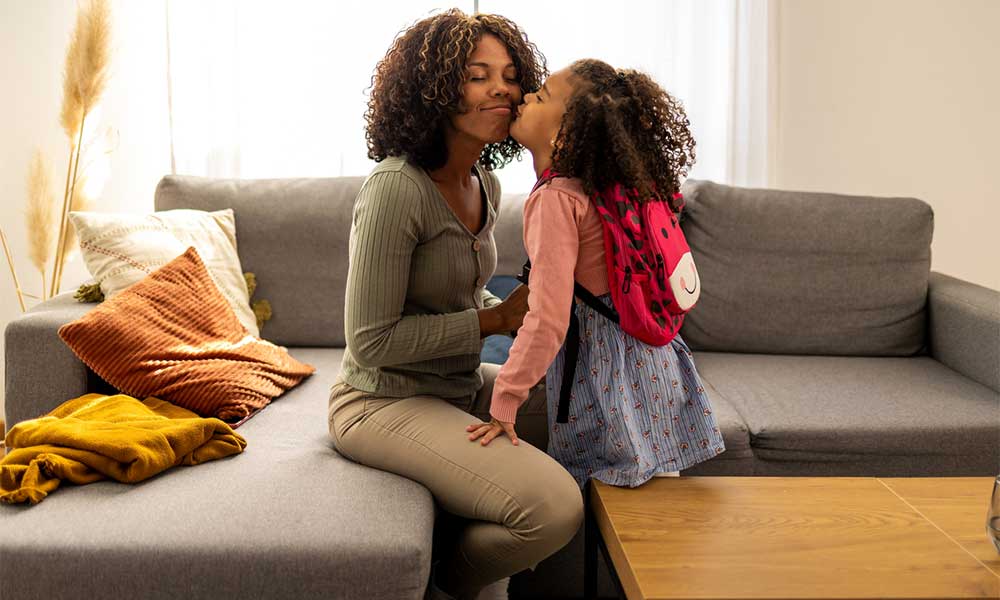Babies change every single day. In their first 1,000 days of life, your baby's brain develops faster than at any other time. Developmental milestones in how your baby plays, learns, speaks, acts, and moves are signposts along their path of growing. From rolling over to waving “bye bye,” from the first silly sounds to the first smile, they act as checkpoints in children's development.
Every baby develops at their own pace. I remember a little twinge of panic when my daughter Simone wasn't sitting up yet, and all the babies on the parenting chat seemed to be posing in a crisscross-applesauce position. How do you know when to worry and when not to worry?
I sat down with Rochelle Wainer, Ph.D., an award-winning expert on early childhood development and the in-house expert for Kids2 to talk all things milestones. She sheds light on why milestones are important—and why they are not a race.
Why do milestones matter?
Milestones offer important clues about a child's developmental health. Reaching milestones at the typical ages shows a child is developing as expected.
“The most important reason for monitoring milestones is to determine whether a child's development is on track,” Wainer explains. “Developmental milestones are a set of goals or markers that a child is expected to achieve during maturation.”
Milestones fall into five categories: gross motor, fine motor, language, cognitive and social-emotional. There are bigger milestones like walking or first words and smaller ones like smiling. Each milestone builds on the previous stages, “almost like dominoes,” says Wainer, “where the first one should be in place before the next one or building the foundation of a house.”
Wainer says, “milestones should really be used as a guide for development, a general overview of how baby’s grow and the steps in the process.” Parents should be monitoring many of them with your pediatrician with each visit to determine if your child is on track.
Sometimes a child might be a little behind, and that’s ok. Every child grows and changes at his or her own pace. Often, there are things you can do at home to help them catch up. Other times, your kid might be a good candidate for early intervention or therapy. Talk to your pediatrician if you have any concerns.
Milestones can feel like pressure, but they don’t have to
Every baby is unique, and there is a range for when children achieve their developmental milestones. Wainer reassured me that “it is especially hard not to worry if your child is slower to reach some of those milestones as other babies, especially if this is your first one.”
If milestones are not a race, why do they sometimes feel like one for parents? If your toddler walks early, are they destined to be a track and field star? If they talk late, are they going to struggle with communication throughout their childhood? In other words, are milestones predictive of what's to come?
The quick answer is…no. Wainer urges parents to think of milestones as “a guide or a journey” instead of a race. “It’s hard not to compare your baby to others to gauge how they and you as a parent are doing,” she says. “But the age at which they achieve the developmental stages is not indicative of intelligence or future development or success. Einstein himself did not talk until three years old, for example.”
Wainer’s older son didn't do a lot of talking when he was little. “When I was almost at the point of teaching him sign language so we could better communicate, he started talking in phrases,” she remembers. “He was just more reserved and a thinker much like he is today. Now he is in graduate school at Stanford!” No two kids have an identical path.
Supporting our little ones on their milestone journeys
Watching our babies grow is one of the best parts of parenting. If you’re feeling milestone anxiety, you could channel some of it into practicing with your baby to continue to develop these skills.
“Parents should be their baby’s first teacher and using the right products and tools to help achieve these stages,” Wainer suggests. “For example, tummy time is a foundational stage early on for babies. They don’t like doing it which make parents unlikely to keep them on their tummy for look, this is where a playmat, gym or toys can help entertain baby.” The Baby Einstein 4-in-1 Kickin' Tunes Music and Languange Play Gym includes plenty to entertain your baby so they can be engaged for longer, like more than 70 sounds and activities, 25 minutes of music, and 7 detachable toys. Plus, baby can play the piano with just a press of a finger or the kick of a foot—which makes tummy time a lot more fun.
Another example is language development. Wainer recommends “parents begin to read with their children very early and develop their curiosity” Start with your childhood favorites and My First Library Board Book Block from Baby Einstein, small board books for little hands with early learning content including colors, shapes, counting, letters, and seasons.
Holding a caregiver conversation even before babies can speak in words is so important—serve and return. “Serve and return” is a term coined by Harvard researchers to describe back-and-forth interactions between adults and children. One person “serves” by offering up a sound, smile, word, or gesture, and the other “returns” it. It can be as simple as smiling at your baby who coos at you. Play is a great way to support and build responsive relationships, and you can practice serve and return as you play with your little one.
Those little moments are the best—they are essential for your baby, and for you. Instead of seeing milestones as a race, picture them as amazing moments along the path of your baby’s journey of growing up—and your journey of parenting.


